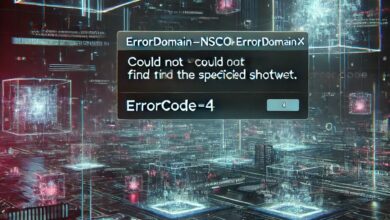10 Questions to Ask Before Hiring a Ruby Developer

The hiring process can be one of the most stressful parts of running a business, especially if you’re still new to this type of work and have no experience on which to rely. That’s why it’s important to take your time when choosing the right person for the job, and get as much information about them as possible before making that final decision. Here are 10 questions you should ask any Ruby developer before deciding whether or not they’re the right person to hire ruby on rails developers.
1) Why do you need a Ruby developer?
A question that’s at least as important as, Can you develop in Ruby? is, Why do you need a Ruby developer? This can reveal hidden problems or possible concerns. For example, if you’re hiring someone to help build your internal applications for your employees and it turns out they are unfamiliar with agile development practices, then you might want to think twice about hiring them. You don’t want someone who doesn’t know how things work on your team; they could create more problems than they solve.
2) What are your priorities?
One of your top priorities is always going to be finding someone who understands Ruby. The developer you hire needs to know how it’s used, be able to communicate with other programmers who use it and understand why you need it. But keep in mind that developers don’t just work on Ruby code; they also work on HTML, CSS and JavaScript. You want to make sure your candidate can juggle all these languages if necessary. You should also ask what tools he or she uses for debugging and testing, as well as what kind of processes he or she follows when writing new code.
3) Where will this person sit?
If you’re hiring someone to work remotely or in your home office, where they sit will be important. Is there room for them at your desk? How many hours per day do they expect to work? Will they be doing their job while they are sitting next to you in an open floor plan, or will they need their own space and time? If a separate area is needed, what amenities should it have.
4) What are your budget and time constraints?
If you’re on deadline, there’s not much point in hiring an expensive developer who will take ages (and thousands of dollars) to deliver. Similarly, if you’ve got a sizable budget but are after high-quality code and fast results, it makes sense to hire someone experienced—and expensive. A good developer will have enough knowledge about your time and budget constraints that they should be able to provide you with accurate estimates and realistic expectations from their end. This is where experience counts; ask for previous clients, or even better: give them a test project before you commit. You want to know what kind of work they do and how long it takes them.
5) Are you looking for someone local or remote?
This is important, especially if you’re looking for someone local or are wanting to pay as little as possible. If you’re just starting out, look for someone local so they can help you through any development mistakes. Otherwise, it might be easier to find someone that can do your project remotely and stay under budget at the same time.
6) Are you looking for a full-time, part-time, or contracted worker?
Whether you’re hiring full-time, part-time, or contract workers, it’s good to know how they’ll fit into your company—and what their exact responsibilities will be. Make sure everyone is on board with that vision from day one. You don’t want any surprises down the road.
7) How much experience do you need?
With a programming language as popular and well-established as Ruby, most of its developers should have at least some experience with it. But knowing how much experience you’re looking for in your hire is an important distinction. If you need help building out your core product or establishing processes, hiring senior developers with lots of experience will help get everything up and running quickly.
8) How will I be able to communicate with my developer?
If you can’t communicate with your developer, it’s going to be very difficult for them to understand your requirements, as well as any changes that need to be made. They also need to understand how they’ll be paid and by whom. If you plan on being involved in every step of development, from hiring developers through launch, then make sure there will be open lines of communication throughout. Asking How will I contact my developer? should help answer these questions.
9) Do you have any specific features in mind?
If you have a specific feature in mind, your developer should be able to provide examples of past projects that included that same feature. If they can’t, it might be wise to look elsewhere. To help get you started, here are 10 questions every potential developer should be able to answer easily: How long have you been developing software?: A longer tenure doesn’t necessarily mean better results, but it does indicate whether or not they’ve stuck with software development over time.
10) What documentation is required on my end (if any)?
I’m not super familiar with Rails, but I have some Javascript background. Can you tell me more about what will be required from my end? What software stack do you use? Do you use GitHub for collaboration? How do you handle deploying my site live? If you have more than one developer working on my project, how is that handled? Do I need to hire an account manager or other people in addition to my developer(s)? How much of your time am I entitle to after launch?




